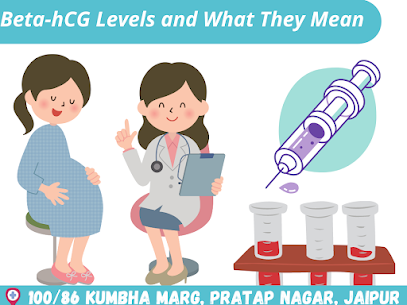HCG Human Chorionic Gonadotropin is a hormone produced secreted by syncytiotrophoblast cells present in the placenta. Syncytiotrophoblast is the epithelial covering of the highly vascular embryonic placental villi. It invades the uterine wall, rupturing maternal capillaries and establishes an interface between maternal blood and embryonic extracellular fluid. It helps in the exchange of material between the mother and the embryo. The placenta is an organ which is developed in the uterus during pregnancy. This attaches to the uterus wall and provides nutrients, oxygen to the growing baby. It also removes the waste products from the blood of the growing baby.
Human Chorionic Gonadotropin HCG is found in both men and women. HCG is important in maintaining the function of corpus luteum. Corpus luteum is a hormone-secreting body in the female reproductive system. It is formed in the ovary and made up of lutein cells. It secretes the estrogens and progesterone. HCG helps the corpus luteum to make changes in the uterus for implantation of the fertilized ovum or egg and the nourishment of the embryo. If the egg or ovum is not fertilized then the corpus luteum will degenerate or becomes inactive after 10-14 days.
HCG can be detected in blood samples after 8-11 days of conception. The levels of HCG doubles continuously for every 48-72 hours and the peak levels can be observed during 8-11 weeks after conception. Later on, HCG levels decline and remain steady for the rest
